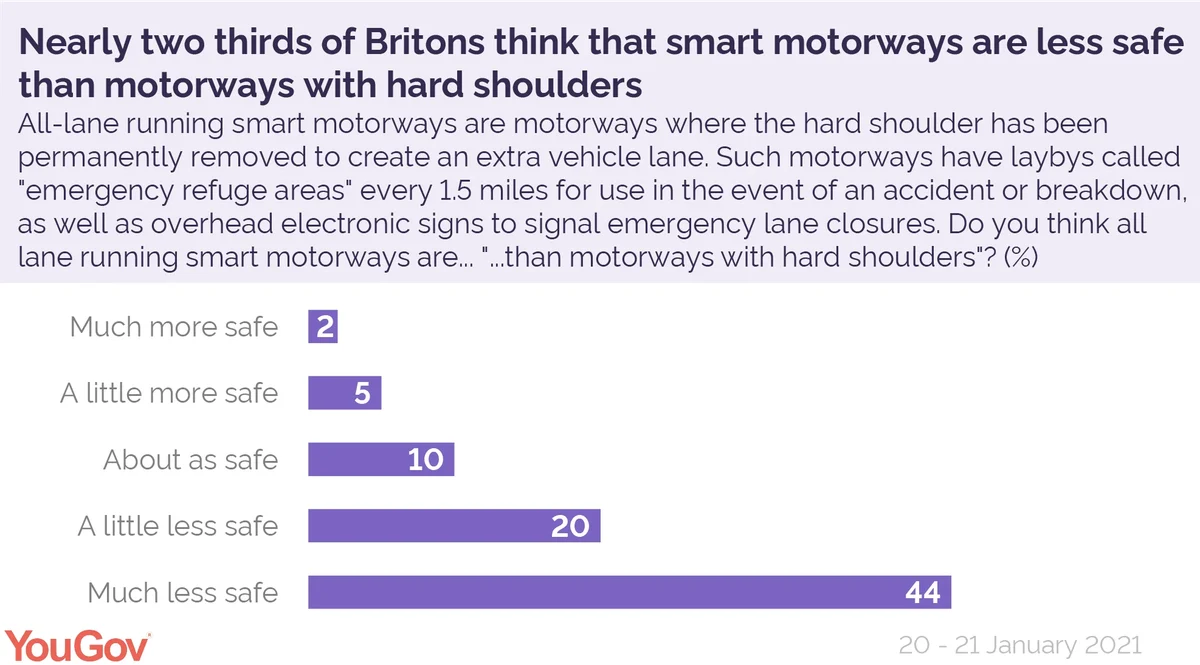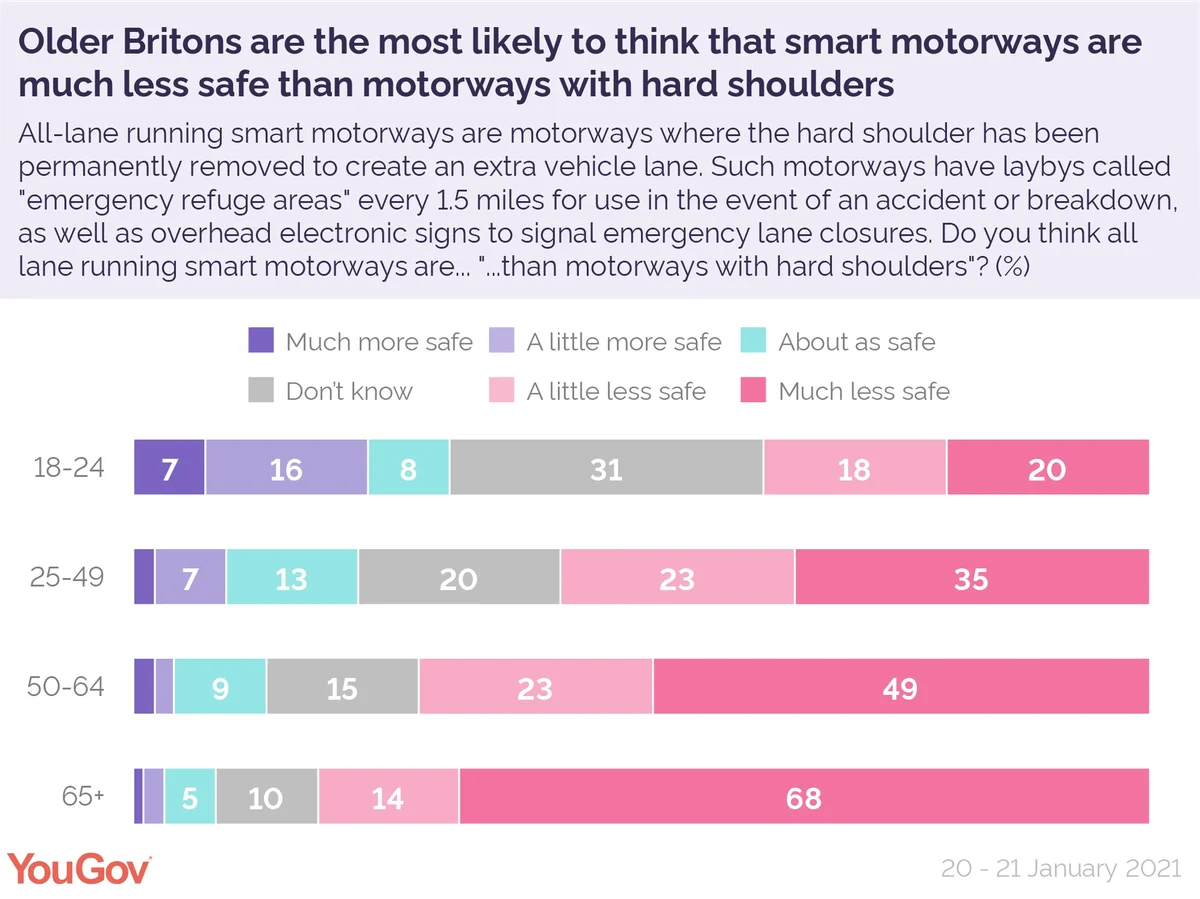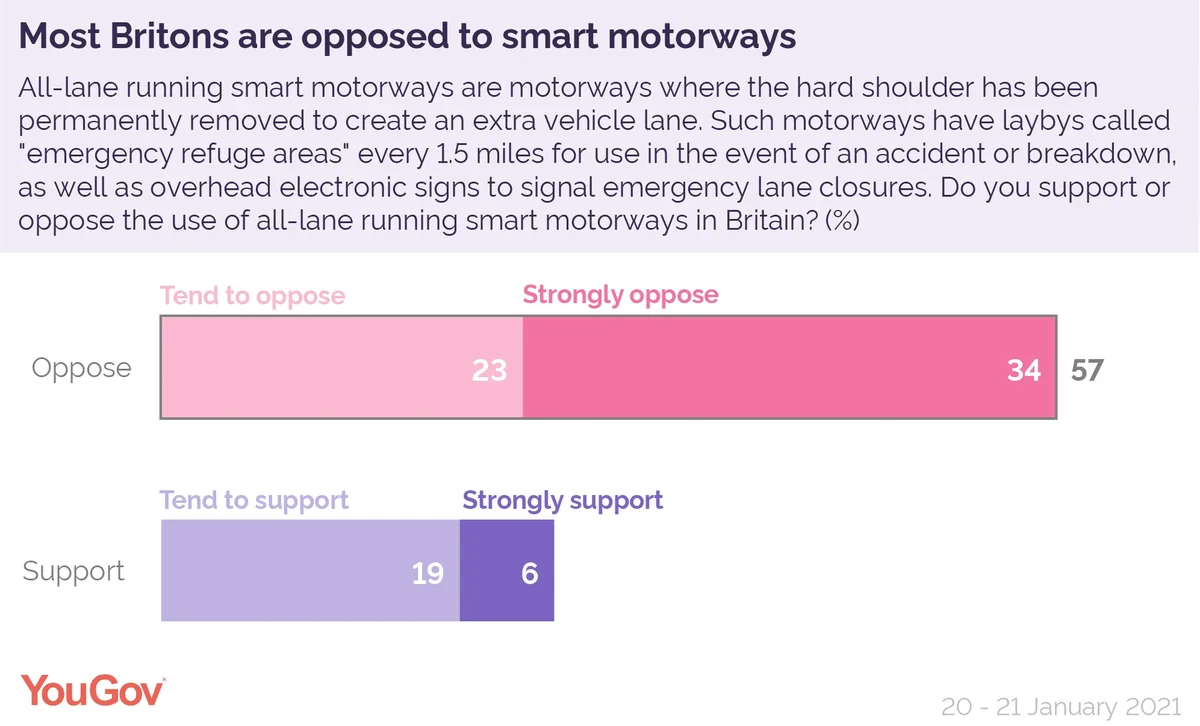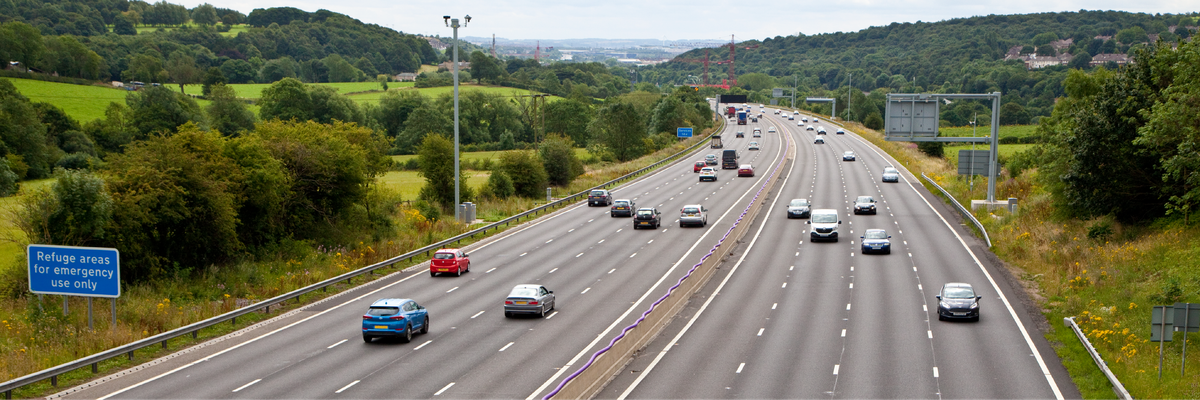Two thirds consider them to be less safe than conventional motorways
The police and crime commissioner for South Yorkshire, Dr Alan Billings, has written to the government to say that smart motorways are "inherently unsafe and dangerous and should be abandoned” after two deaths on a “smart” section of the M1.
All-lane running smart motorways differ from conventional motorways by doing away with the hard shoulder, and having four lanes of traffic instead of three. Such motorways have laybys called "emergency refuge areas" every 1.5 miles for use in the event of an accident or breakdown, as well as overhead electronic signs to signal emergency lane closures in the event of an accident.
Nearly two third of Britons (64%) agree with Dr Billings in thinking that smart motorways are less safe than motorways with hard shoulders, including 44% who think they are “much less safe”.

Only 7% of Britons say that smart motorways are safer than motorways with a dedicated hard shoulder, while one in ten (10%) think that the two motorway designs are just as safe as each other.
The older Britons are, the more critical they are of smart motorways Eight in ten over-65s (82%) think they are less safe than conventional motorways, with just 3% thinking they are safer.

By contrast, 23% think that smart motorways are safer, although a larger proportion 38% think them less safe than hard-shoulder motorways (and a third don’t know).
Unsurprisingly, given these concerns, the majority of Britons (57%) are opposed to using smart motorways in Britain, including 34% who are strongly opposed. A quarter of Britons (25%) support their use, but only 6% strongly support them.

Young Britons are split over the issue, with 38% of 18 to 24-year olds in support of using smart motorways, compared to 35% who are opposed, although 27% aren’t sure. In comparison, 79% of those over 65 are opposed, and only 11% are in favour of using smart motorways in Britain.








